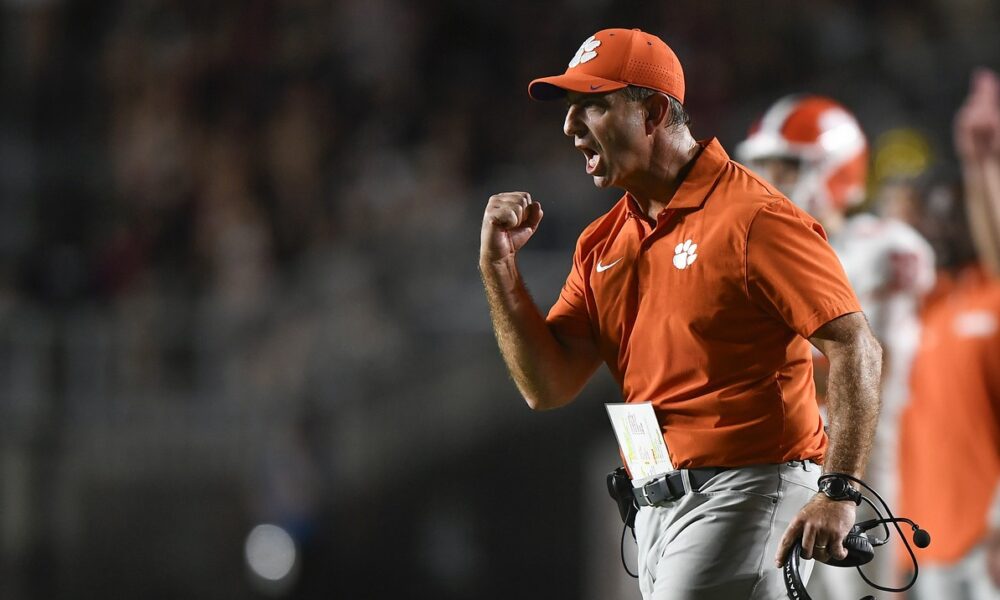CLEMSON — Dabo Swinney has been adamant that the new revenue-sharing model, along with some of the guidelines surrounding NIL, which were put in place due to the House settlement, will bring a little more stability to college football.
Beginning on July 1, schools were permitted to share revenue directly with college athletes. The settlement allows schools to share up to $20.5 million with student athletes, with each school allowed to decide how that money is distributed.
However, where things start to get murky centers around NIL, and the new entity put in place to oversee and approve those deals. The new guidelines are aimed at slowing down the “pay for play” landscape that has run rampant, with collectives basically paying players just to sign with their respective schools.
There is now a new portal called NIL Go, designed to allow student-athletes a way to report third-party NIL deals to be evaluated for rules compliance. If a deal is deemed not to be a legitimate sponsorship deal, it will be rejected.
Many have doubts about how effective these new guidelines will actually be, and if the NCAA can legally restrict any player’s earning potential. However, Swinney has always maintained that he believes the new model will be better than the wild, wild west landscape that has been in place for the past few years, and on Tuesday, the head coach detailed why he feels that way.
“I do. Because I think the commissioners and presidents, they put all that stuff together and spent a bunch of money to create this entity,” Swinney said during Clemson’s annual media outing. “I think we got to give it a chance. So yeah, I am optimistic.
“There has been a lot of work that has been put into, again, putting an infrastructure in place. But now it’s got to fill in, and you’ve got to give it some time. But we’re not there yet. With some of the money that was front-loaded, the cap is going to be a little bigger for some people this year, but it will settle out.”
The House settlement was years in the making, meaning a lot of time and, even more importantly, a lot of money was spent, and all the effort that went into making the deal happen gives Swinney optimism.
“There is a lot that went into this settlement,” Swinney added. “It’s not like one person made a decision. A lot of people have been involved for a long time, so yeah I’ve got faith.”
Swinney knows this isn’t an overnight fix. It will take some time for things to settle out. But he is hopeful that the future will be brighter than what the sport has experienced in recent years.
“We haven’t dealt with a lot of the complete chaos,” Swinney said. “I would say on a scale of 1-10, we have about a three here. We are blessed simply from the continuity that we have had, the culture, the structure, just kind of how we go about doing things. But everybody has been affected and everybody is hopeful that we will have a little more order. Because at the end of the day, I think we’ve got to educate young people and I think the number one way to do that is to have a little bit better landscape that is conducive to that.”
